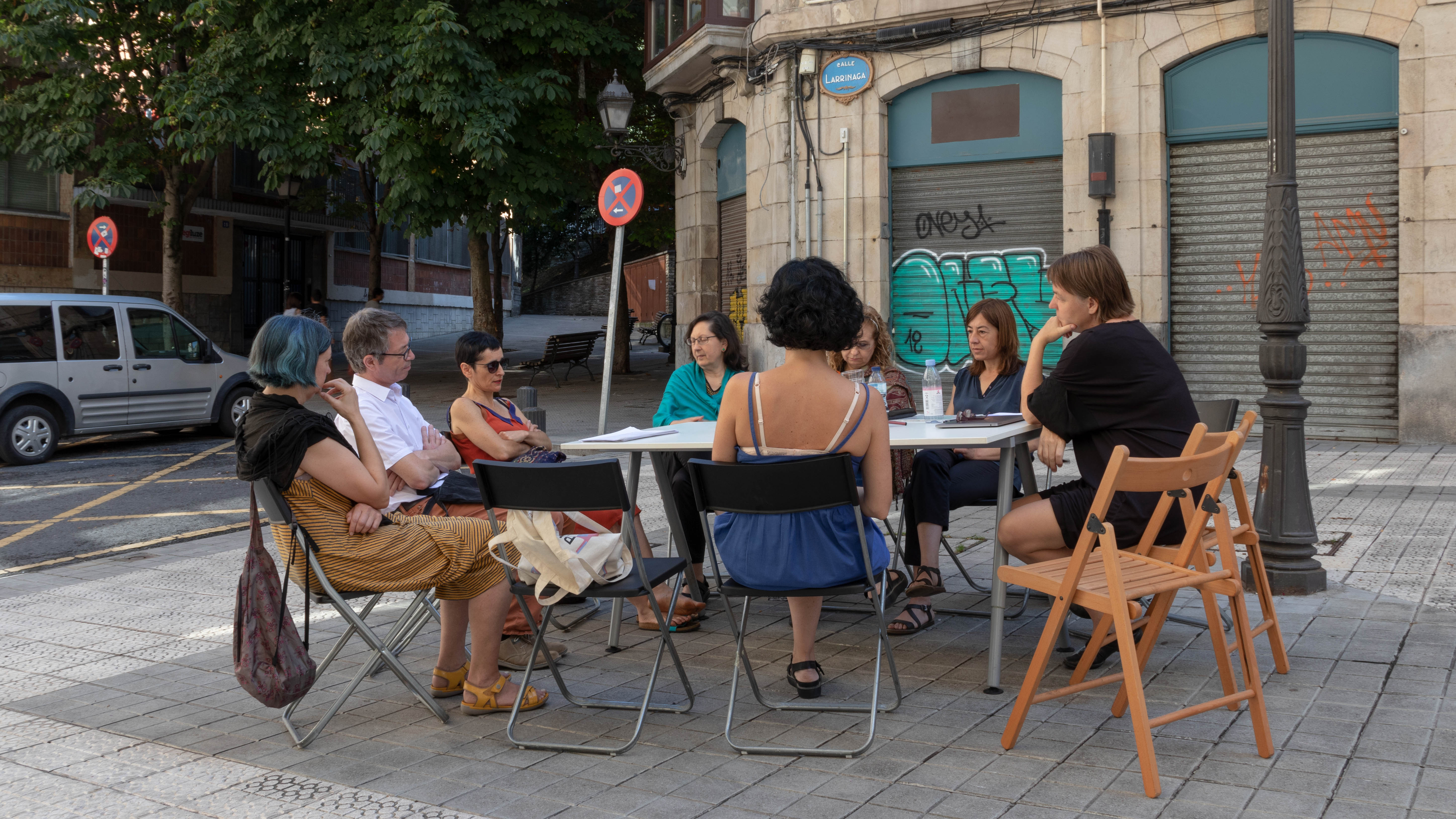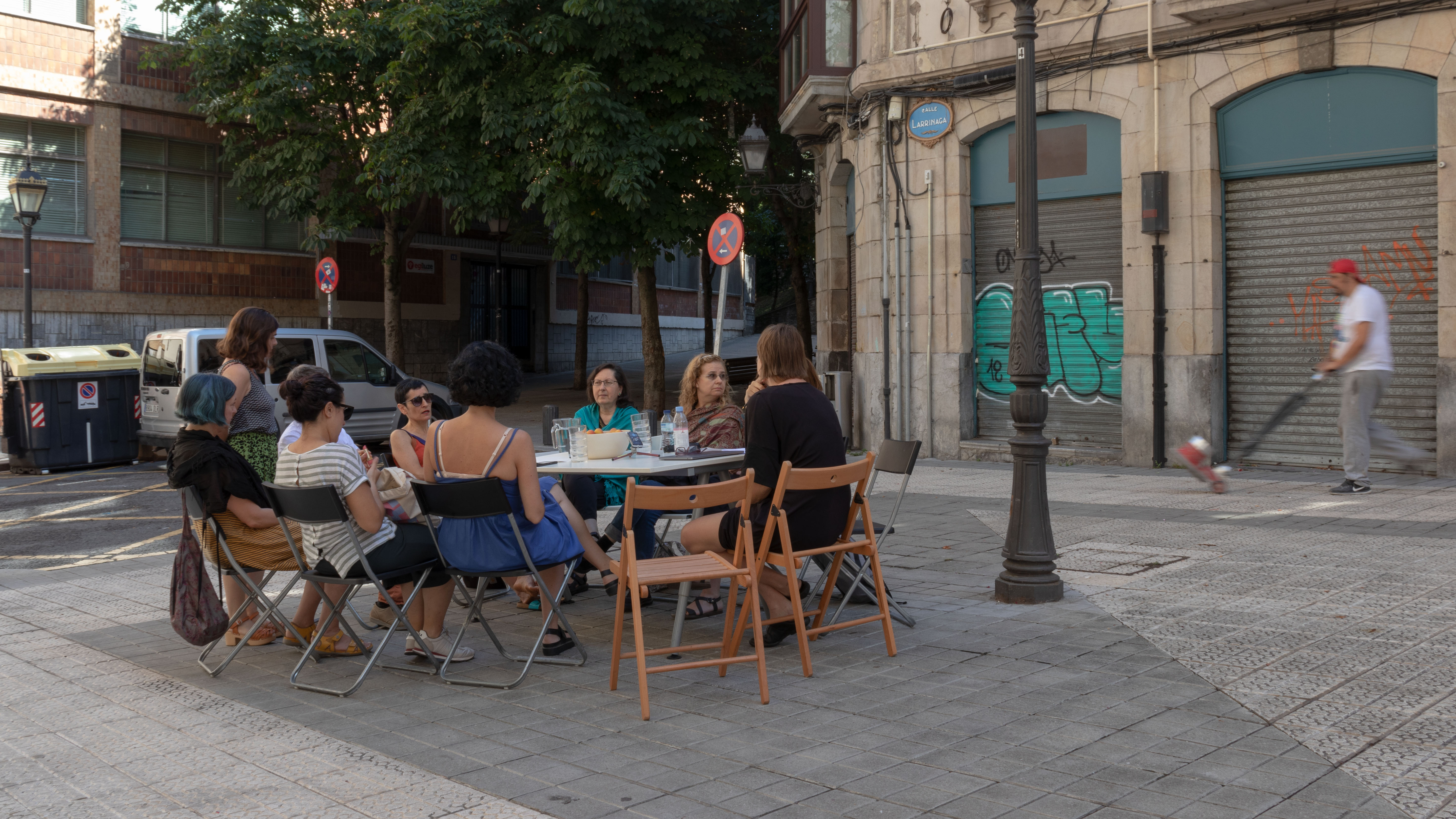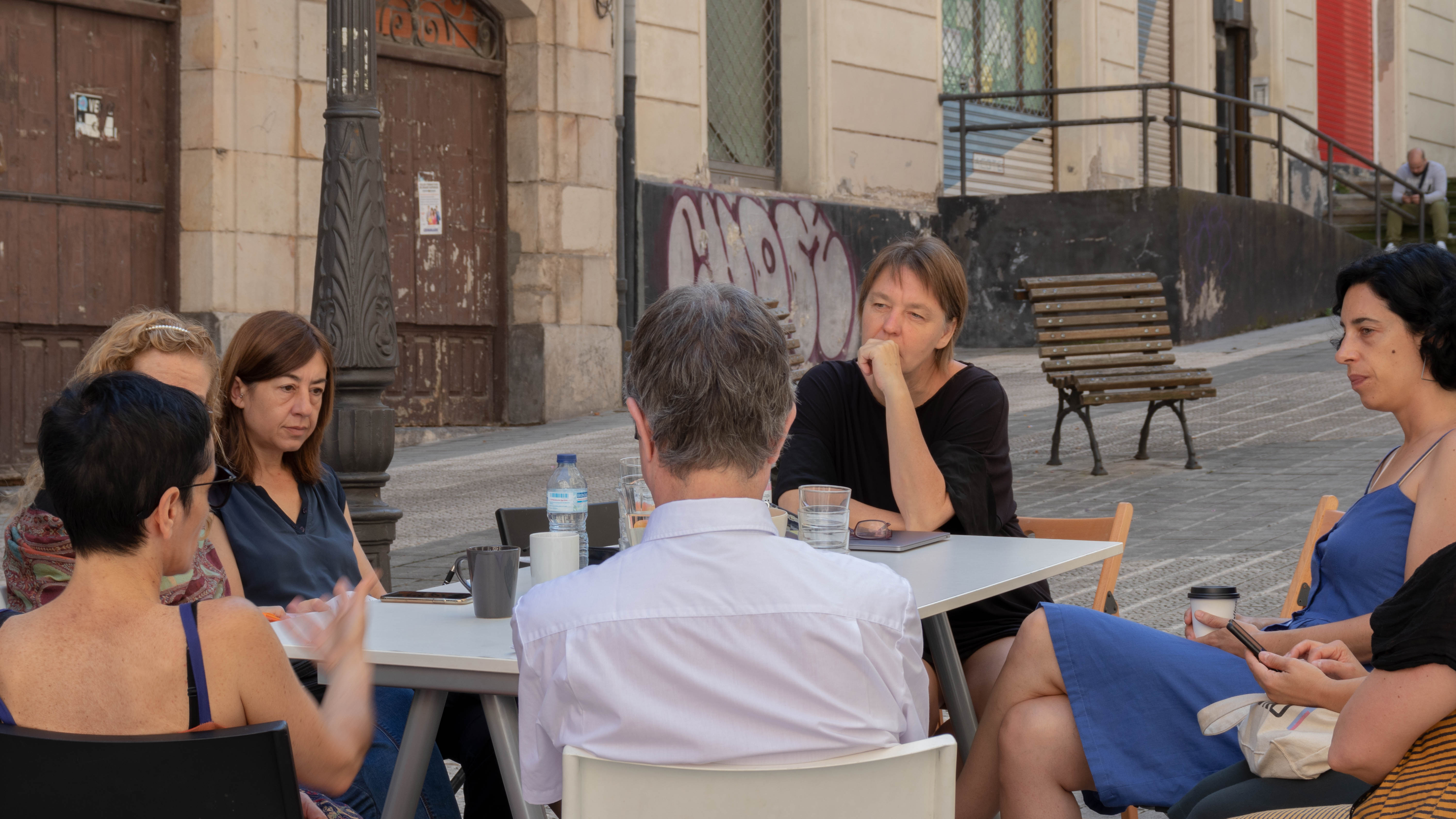Close Encounters, Space is the Place / The Place is Space
INES SCHABER: ART, MANIFEST(O)ING
by
Art, Manifest(o)ing is a workshop led by Ines Schaber. It is the second encounter of Space is The Place/The Place is Space. The structure of the program takes the shape of periodical encounters. It aims to analyse the role of art as a critical practice which offers tools for stopping, looking and situating ourselves in the world, and for creating situations and imagining ways of living and producing space.
To take part in the workshop from 11 am to 2 pm and be sent the reading list, please contact bulegoa@bulegoa.org
Art, Manifest(o)ing
In recent years, artists’ positions regarding societal issues are habitually negotiated. In various places and under quite different circumstances, questions are asked such as: What is the position of art and artists for and in a changing society? How do artists organize—individually, collaboratively, collectively, or as part of body of professional representation? Do they work within a network of activism? How do they relate to changes in the city?
In the workshop, I would like to talk about two kinds of positions of critique and engagement: one that is exemplified by Haben und Brauchen, an artist initiative from Berlin, another by Defend Boyle Heights, an action organization from Los Angeles.
In 2011, many artists in Berlin were invited to participate in an exhibition that thought to show the achievement of young Berlin art, and received this as a provocation. Many refused to take part, as for them, at the very moment when the conditions for people engaged in cultural production were worsening dramatically, the city prided itself on its artists. The view of how art should be fostered thus stood in stark contrast to what culture-makers considered necessary. At the beginning of its actions, the groups’ position was to fight for their own working and living conditions; however, after some time, it became clear that questions such as work and labour, art and autonomy, as well as the city development at large, were shared by many others. Haben und Brauchen was therefore forced to confront the issue of whether to press for those issues in relation to art or engage in them in broader networks.
Defend Boyle Heights in Los Angeles, on the other hand, is a group that understands itself as a revolutionary anti-gentrification organization. In their opinion, art, and how it operates alongside real estate investors, produces problematic conditions that have to be countered. Thus in the last years, Defend Boyle Heights has carried out organised action to drive galleries out of their neighborhood.
The two examples, as many others that have formed in recent years (like groups organizing in relation to municipalism as well as the 5M movement in Spain) challenges artists and other creatives to position themselves in relation to city politics, increasing rents, changing labor conditions and austerity politics. In the workshop we will talk about those questions and conduct a series of experiments and mappings in relation to our own conditions and positions.
Ines Schaber is an artist based in Berlin and Los Angeles. Since 2014 she has been teaching at the California Institute of the Arts in the program of Photography and Media. Her artistic work revolves around questions of visibility and that which remains absent. It has been shown among other places at documenta 13; Camera Austria / Steirischer Herbst, Graz; Graham Foundation, Chicago; Brussels Biennial; Belfast Exposed Photography; nGbK Berlin etc. In 2010, Ines joined the art action group Haben und Brauchen (to have and to need), which addressed the position of the visual arts in relation to economy and funding as well as the role it played in cultural advertisement of the city. In 2011, 45 people co-wrote a manifesto. Together with Valeria Fahrenkrog, Joerg Franzbecker, Erik Göngrich, Heimo Lattner, Katja Reichard and Florian Wüst, Ines is also a co-founder of the Berlin Journals–On the History and Present State of the City (http://www.berlinerhefte.de).






